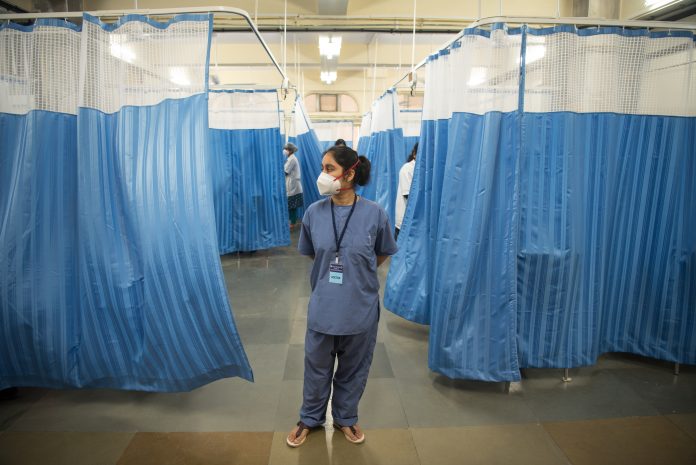A Scottish study, published in The Lancet, found the Delta variant was twice as likely as the Alpha variant to cause COVID hospitalisation
The UK’s ‘unlockdown’ date of 21 June has been pushed, as the Delta variant continues to fuel rising case levels across the country. The variant, originating in India, has so far been thought to be as infectious as the Kent-based Alpha variant.
Twice as hard-hitting as Alpha?
However, a Scottish study revealed on Monday (14 June) that the Delta variant is putting Scottish people in hospital with the virus, twice as much as the Alpha variant did. The research also highlighted that people with five or more comorbidities were likely to be hospitalised, alongside a new trend of younger, more affluent groups contracting a severe form of the virus.
The Alpha variant was in itself known to be more transmissible than the original virus. Alpha was scientifically believed to be hugely responsible for the UK’s winter wave, that saw death levels rising to their thousands again and medical staff stretched to level that left burnout as “a widespread reality”, according to a Health Committee report on the impact felt by the NHS.
The Scottish study examined a group of 19,543 individuals, 377 of which were admitted to hospital with severe COVID. When they examined how the vaccines are working, they found that both first doses of Pfizer and AstraZeneca were taking up to 28 days to begin having an impact on transmission and hospitalisation.
Do vaccines work as well?
This study can’t be sure.
The scientists also proposed that both Pfizer and AstraZeneca were working at less expected against the Delta variant. However, they also commented: “Given the observational nature of these data, estimates of vaccine effectiveness need to be interpreted with caution.”
These figures were obscurely contradicted by a Public Health England (PHE) study released today (15 June), which suggested that both vaccines provided above 90% levels of protection against hospitalisation. However, the PHE study made no mention of how long either vaccine took to begin having an effect against Delta.











